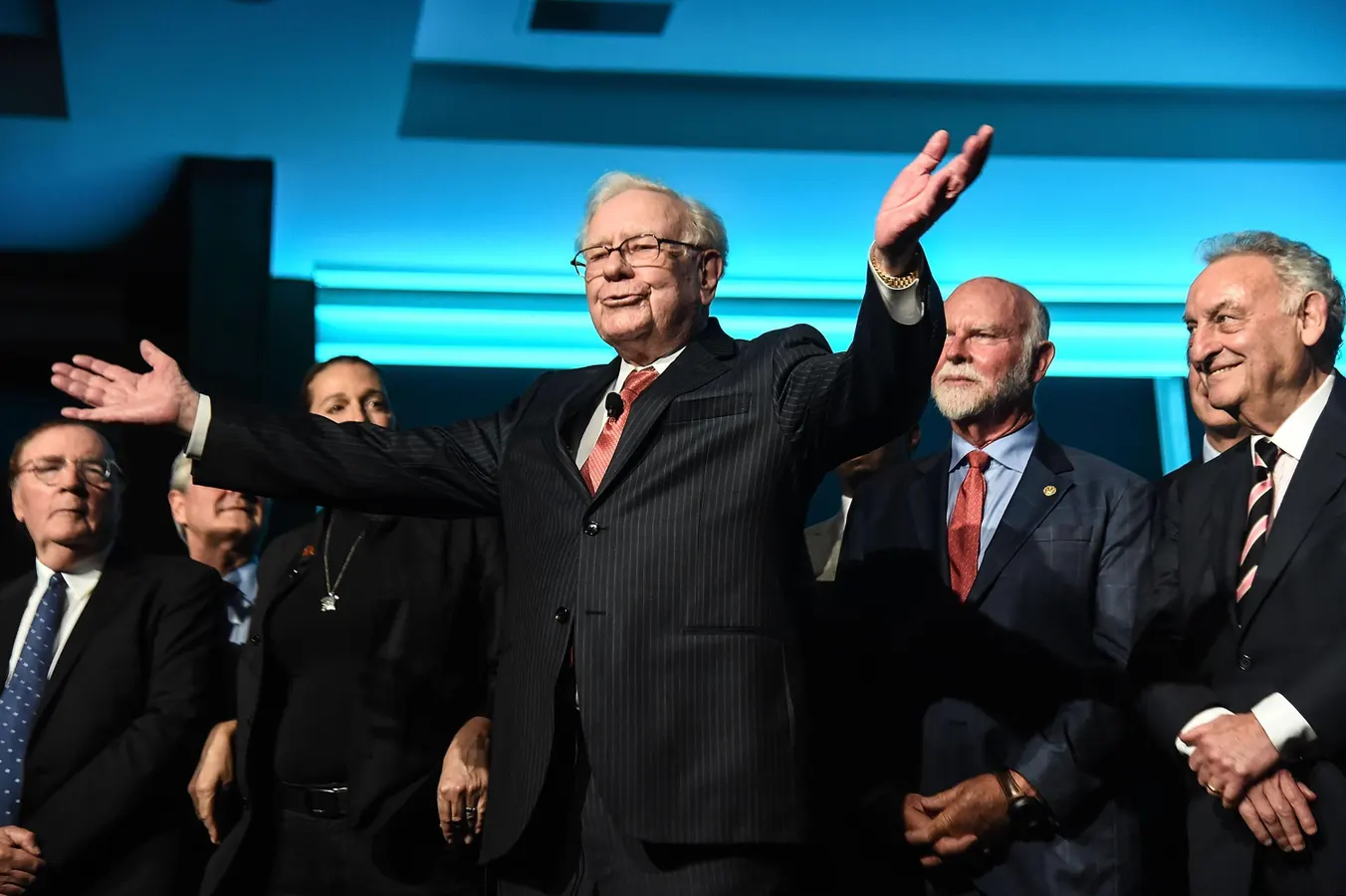By Contributor,Daniel Zuchnik,Theodore McDarrah
Copyright forbes

NEW YORK, NY – SEPTEMBER 19: Philanthropist Warren Buffett (C) is joined onstage by 24 other philanthropist and influential business people featured on the Forbes list of 100 Greatest Business Minds during the Forbes Media Centennial Celebration at Pier 60 on September 19, 2017 in New York City. (Photo by Daniel Zuchnik/WireImage)
Warren Buffett, one of the 10 wealthiest people in the world with a net worth of just over $147 billion, is retiring at the end of the year.
Yet even at 95, Buffett is clear that he is “not going to sit at home and watch soap operas.” He is not even completely stepping away from Berkshire Hathaway, which was a textile manufacturer when Buffett first took over in 1965. Although Gregory Abel, a current vice chairman, will take over as CEO on January 1, 2026, Buffett will remain the chairman and largest stakeholder.
Back in 2021, Buffett told CNBC that Abel would succeed him when he decides to step aside, but Buffett’s retirement announcement still hit like a bombshell at the annual shareholders meeting this past May. According to executive search firm Egon Zehnder, CEO succession planning typically takes place over a two-year period before the official transition date. So it makes sense that the plan was baked for at least four years prior.
This kind of succession planning adheres to constitutional laws or organizational structures to keep the status-quo. There is often a set process for selecting a new leader, or the hierarchy makes it clear who the next leader will be when the current one is no longer available. These situations highlight the limits of individual leadership.
But these kinds of backup plans may actually hinder leaders. A 2016 study out of the Wharton School at the University of Pennsylvania shows that making a backup plan can have adverse effects. The study suggests that “the mere act of thinking through a backup plan may reduce performance on your primary goal by decreasing your desire for goal achievement.” This theory was then empirically proven: “The individuals randomly assigned to think through a backup plan subsequently perform worse on their primary goal.”
MORE FOR YOU
These succession standards can actually limit a leader’s current influence and capabilities. Consider the world of philosophy, which has historically been driven by cults of personality.
An early example comes in 399 B.C.E. at the trial and eventual death of Socrates. He had no planned successor, even after being convicted of “refusing to do reverence to the gods recognized by the city, and introducing other new divinities” as well as “corrupting the youth.” Plato, his exceptional student who is thought to be under 30 at the time of the execution, became the heir and serves as the blueprint for all future philosophers.
You can tell a similar story about the Austrian philosopher Ludwig Wittgenstein, regularly viewed as the most influential philosopher of the 20th century. He clearly had no plan for a philosopher successor. He published only one book in his lifetime, Tractatus Logico-Philosophicus, that he believed found “the final solution of the problems” of philosophy.
It is an encouraging sign when a titan like Buffett is candid about his aging and dealing with issues such as balance, vision and memory, as well as creating a longstanding succession plan, but empirical and historical evidence show it isn’t the only plan.
Editorial StandardsReprints & Permissions



